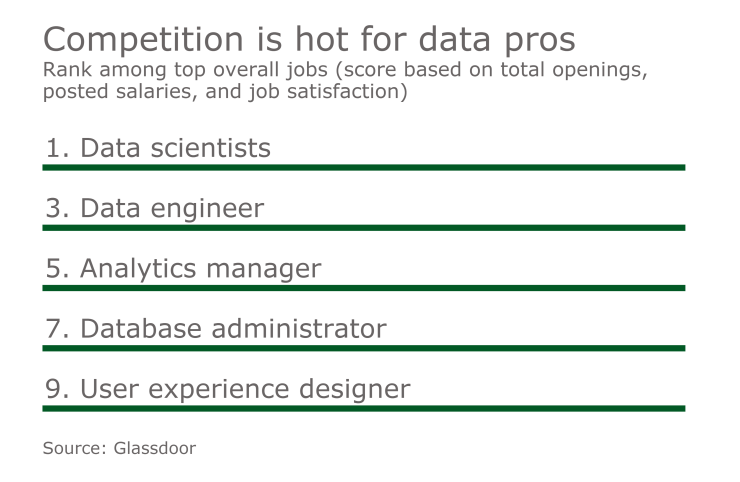A friend of mine – a data scientist by profession – makes it a point to tell people simply that he is a “scientist,” period. “‘Data scientist’ is redundant,” he says, “because being a scientist is all about data.” The point is well taken, but that’s not stopping insurers from searching for “data scientists” – meaning people skilled in analyzing complex digital data to unlock business value – specifically.
For insurance, an industry steeped in statistics, it may also seem almost redundant to bring in data scientists. Isn’t data science what the industry has been practicing for decades? Well, yes and no.
Insurance companies quickly are becoming data companies – truly, big data companies – handling not only the traditional actuarial and risk-related statistics, but also data flowing in from telematics, customer interactions and transactions, fraud-prevention algorithms, geodata, social media, mobile app engagements, and a host of other sources. It’s great to have a lot of data, but it only becomes valuable when it’s assembled into actionable insights. Needed, desperately, are individuals who can dig through all this data and understand which nuggets are of value, and which are simply a lot of noise.
Enter the data scientist, a professional area gaining increased traction within the insurance sector. A recent help-wanted ad posted by a leading insurance company describes how an incoming data scientist “will establish the vision and strategic capability to enhance our performance in the marketplace by effectively leveraging data science and predictive analytics.” This professional would “influence and champion the adoption of sophisticated analytic decision making processes,” as well as “conceive, develop, implement, and continually improve upon closed-loop models that integrate decision making across functions in support of corporate strategies.” The position would also “lead the connection of business strategies with the capabilities available as we become an integrated digital enterprise – helping business leaders understand and capitalize on the capabilities available to produce business outcomes.”

A recent survey by IT services provider
How can the potential successes of data science be realized in insurance companies? Some possibilities were explored by Yue Cathy Chang and Heather Nelson, both affiliated with Silicon Valley Data Science. Big data is being employed in both large insurers as well as smaller startups to realize value. Today’s challenge for digital insurers,
There’s nothing new about the use of external data in the industry: “As early as the 1930s, insurance companies combined internal and external data to determine the rate for policy applicants,” Chang and Nelson note. Technology is adding a new dimension, as essential data for customer applications may be already readily available, and “some speculate that all insurers will purchase external data by 2019 in order to streamline their underwriting, among other things,” they continue.
Those external sources that may include credit scores, or “data on shopping behaviors, historical quotes and purchases, telematics, social media behaviors, and more,” they add. “The proliferation of third-party data sources is reducing insurers’ dependence on internal data.”
Things get even more revolutionary when the data is real time. “The usage of real-time data, such as apps that engage customers with warnings of impending weather events, can cut the cost of claims,” Chang and Nelson observe. In addition, “real-time digital data exhaust -- for example, from multimedia and social media, smartphones, and other devices -- has offered behavioral insights for insurers. For example, Allstate is considering monitoring and evaluating drivers’ heart rate, electrocardiograph signals, and blood pressure through sensors embedded in the steering wheel.”
This all points to insurance companies being the ultimate big data companies in many respects. It’s going to take an understanding of the power, potential and limits of data science – incorporating business sense – to move forward.





